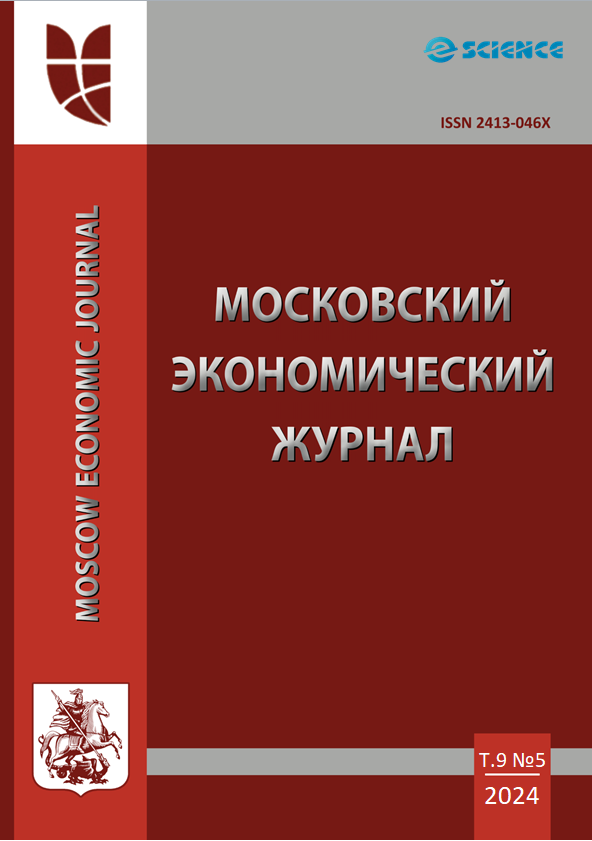UDC 332.2
The presented article examines the types of land and property complexes of the city of St. Petersburg from the perspective of a unified territorial system within the framework of integrated territorial development projects (IDT). Measures to update the concept of land management in a metropolis are analyzed. The author formulates the conclusion that in order to practically implement the tasks set for the modernization of existing and development of existing land and property complexes, it is planned to involve regional authorities as much as possible in additional incentives for residents within the zones. In addition, attention is focused on the fact that the current investment legislation of the city of St. Petersburg provides for business entities in the zones a reduction in profit tax by 4% and property tax by 50%. In addition, when allocating territories with engineering preparation, the cost of preparation is paid by the investor and the city on a parity basis. In this case, the maximum rent for land is provided in the amount of 2% of the cadastral value of the land. As a consequence, in these conditions, the importance of purely “land” tools for effective development, such as land development (preparing engineered areas for the location of high-tech industries), increases very significantly. At the same time, on this basis, a “point” effect is achieved. In this regard, there must be a mechanism by which the city (and therefore the state) can ensure the mass character of the process. To achieve this goal, the presented article proposes to maximally involve regional authorities in additional incentives for residents within the zones, which will optimize the declared area.
land and property complex, classification of ZIK by type and purpose, management concept of ZIK of a large city, complex, municipality, property policy
1. Zemel'nyy kodeks Rossiyskoy Federacii» ot 25.10.2001 № 136-FZ (red. ot 14.02.2024) (s izm. i dop., vstup. v silu s 01.03.2024)
2. Grazhdanskiy kodeks Rossiyskoy Federacii ch.1 ot 30.11.1994 № 51-FZ (red. ot 11.03.2024)
3. Federal'nyy zakon ot 13.07.2015 № 218-FZ (red. ot 14.02.2024) «O gosudarstvennoy registracii nedvizhimosti»
4. Hametov T.I. Osnovy formirovaniya ob'ektov zemel'no- imuschestvennogo kompleksa i ih effektivnogo ispol'zovaniya. Monografiya. // Penza: PGUAS, 2008. 159 s.
5. Belen'kiy V.R. Rynochnaya cena zemel'no-imuschestvennyh ob'ektov (kompleksov), raschetno-konstruktivnye i grafo-analiticheskie metody modelirovaniya // M.: Bylina, 2001. 224 s.
6. Vlasova N.Yu., Antipin I.A. Zemel'no-imuschestvennyy kompleks kak znachimyy faktor postupatel'nogo razvitiya krupneyshego goroda // Jour№al of №ew eco№omy. 2009. №1 (23).
7. Kuhtin P.V. Marketing i ekonomicheskaya ocenka zemel'no- imuschestvennogo kompleksa gorodov (naselennyh punktov) : ucheb.-metod. po- sobie // M., 2003. 259 s.
8. Astaf'eva O.S., Astaf'eva O.S., Fomin A.A., Shevchenko T.V. Osobennosti upravleniya zemel'no-imuschestvennym kompleksom v sovremennyh usloviyah na razlichnyh administrativnyh urovnyah // Urovni. Mezhdunarodnyy sel'skohozyaystvennyy zhurnal. 2021. Tom 64. № 1. str. 16.
9. Chekin S.V. Strukturirovanie zemel'no-imuschestvennogo kompleksa // Aktual'nye problemy zemleustroystva i kadastrov na sovremennom etape: materialy mezhdunarodnoy nauchno-prakticheskoy konferencii 3 marta 2017g., Penza: PGUAS, 2017313-316.
10. Golaydo I.M., Suhorukova N.V., Cvyrko A.A Ocenka investicionnoy privlekatel'nosti regiona// Vestnik OrelGIET. 2020. № 2 (52). S. 54-63.











